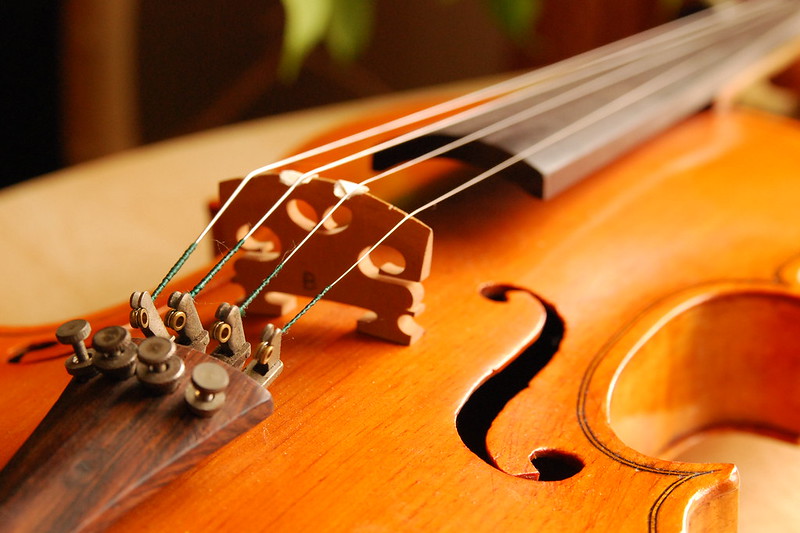Taking a Step back – Playing WIthin Your Skill Level
Posted on February 20, 2020

Last week, I took a step back and had a hard, long look at my practice.
While on one hand, I know that practice should not always be easy, I started to really think about the songs I was trying to polish up. I tend to always finish a session with “Well, it’s not perfect, but will keep working on it.” But never truly feeling I’ve got the song sounding pretty good.
Some of this was due to the fact that I got Cripple Creek as a random practice tune review one day the previous week. I also got O, Holy Night one of those days, too.
The idea behind having a tune review is that you’re supposed to be touching on tunes you already know. Just to keep in practice with them.
But when I ran across these two tunes – both that were always difficult for me to play – I’d either forgotten most of them, or I played them so poorly, that most of my time during that practice went to the frustration of trying to relearn what I thought I already knew. And even then, I still didn’t play either song anywhere near satisfaction.
That shouldn’t be the case. A review is a review. The learning part should be focused on the newer tunes, not things you were supposed to already know.
So this told me something: I previously didn’t really learn these two songs very well. And that’s frustrating, especially in the case of O, Holy Night, because I practiced that for two months before I thought I knew it well enough to put on the review list.
Cripple Creek is a song I was supposed to have learned some time last fall. But apparently, I didn’t. So I chose to put Cripple Creek as the tune review for every day last week in attempt to try to improve it. Again… that’s not what review is really supposed to be about.
Halfway through the week, I’d improved somewhat, and remembered the song a lot better. However, it was obvious that it would take a lot more than a week of practice to get it sounding like it should.
This just causes frustration. It’s easy to start blaming yourself, or your bow hold, or any number of things, when you can’t quite “get it.” I did all of these things for a bit… then I took a step back and had a realization.
Playing Within Your Skill Level
I’m over a year into learning to play fiddle. As an adult, my mindset is that I should be able to pick up a song, and sound good (quickly). But the reality is, I can practice until I’m blue in the face, but if a song is outside of my skill level, it’s going to take all that much more time to make it sound good.
Is it possible? Yes.
Am I that passionate about Cripple Creek that I want to set everything else aside to master that song in particular?
Not really.
It was just one of a list of tunes that was in the American Fiddle Method as I worked through it. But I have no burning love for it – it’a good tune, don’t get me wrong, but you know what I’m saying.
I’m not willing to sacrifice my progress in everything else… because sitting here working on mastering one song that’s out of my skill range is going to require that kind of dedication and time. I’m doing this for the fun of it, and while practice should challenge, I shouldn’t be struggling this much.
In fact, the newest video by Julia at Violinspiration included this in her tips for looking more professional of a player than you actually are. Take slow, small steps, and work up to harder pieces.
Finding a Comfortable Level
So this week, I dialed it back some. It helped that I also decided to jump in and try a new learning track made just for Irish fiddle. I wish I’d found this earlier, because I think I would have been a happier fiddler last year if I had!
Now, I don’t need Twinkle level difficulty. I am way past that. But, I need something between that and the level of mastery demanded from the AFM tunes.
Thankfully, this school started with Maggie in the Woods, which I feel is just about the right level of difficulty for me. I picked up the tune quickly, in a few days had it memorized, and now I’m working on starting to get comfortable with it.
Overall, I feel a whole lot better about my sound and my practice sessions since I dialed it back. And when I feel better about practice, and like what I’m playing, that means I’ll stick to my practice more consistently. And, likely, I’ll hopefully get more out of my practice than being frustrated with my sound and “fixing it tomorrow.”
I’m very glad that I took the time to think about what was going wrong with my practice and progress. I just figured, “It’s the next song in the series, so I should be able to play it.” That’s not always the case.
When you’re learning on your own, you have to be your own teacher. And part of being a teacher is recognizing when the student is overreaching to a point that it’s detrimental. For me, I guess it’s one of those trial-by-error things.
I still learned a lot, either way, so nothing was lost.
Almonihah - Thursday, February 20, 2020
I think this is applicable to more than just playing music. :D
Aywren - Thursday, February 20, 2020
I agree! I've actually learned a lot about practicing/learning just about anything due to trying to learn to play an instrument.